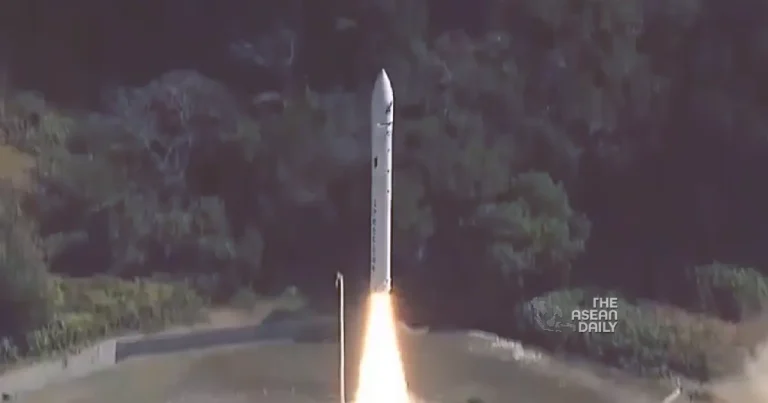13-3-2024 (TOKYO) Japan’s space ambitions were dealt a setback on Wednesday as Space One’s small Kairos rocket, fueled by solid propellant, exploded shortly after its inaugural launch. The incident occurred as the firm aimed to become the first Japanese company to successfully deploy a satellite into orbit.
The 18-meter (59-foot) Kairos rocket, equipped with four stages and solid-fuel propulsion, detonated mere seconds after liftoff, precisely at 11:01 a.m. local time (0201 GMT). The explosion resulted in a large cloud of smoke, flames, rocket debris, and firefighting efforts near the launch pad, captured by local media livestreams from the picturesque Kii Peninsula in western Japan.
Space One acknowledged that the flight was “interrupted” post-launch and promptly initiated an investigation into the circumstances surrounding the explosion. As of yet, there has been no indication of the cause of the malfunction or reports of injuries. Launch pads are typically devoid of personnel during liftoff, and Space One emphasized the high level of automation involved, requiring only a limited ground control team.
BREAKING NOW: ⚠️ Japan’s Space One rockets EXPLODES during liftoff..
DEVELOPING..
pic.twitter.com/Rk7NclFslc— Chuck Callesto (@ChuckCallesto) March 13, 2024
The ill-fated Kairos rocket was carrying an experimental government satellite designed to provide temporary replacement capabilities for intelligence satellites in the event of operational failures.
Originally scheduled for Saturday, the launch was postponed after a vessel entered the restricted sea area adjacent to the launch site.
Despite Japan’s relatively modest stature in the global space arena, its rocket developers are fervently working to develop cost-effective launch vehicles to meet the escalating demand for satellite launches, both domestically and internationally.
Established in 2018, Tokyo-based Space One is a consortium comprising Japanese firms such as Canon Electronics, IHI’s aerospace engineering unit, Shimizu construction company, and the Development Bank of Japan. Additionally, Mitsubishi UFJ and Mizuho, two of Japan’s largest banks, hold minority stakes in the venture.
Following Wednesday’s failed launch, shares in Canon Electronics plummeted by over 9%, underscoring investor concerns over the setback.
Space One envisions offering “space courier services” to clients both at home and abroad, with aspirations to conduct 20 rocket launches annually by the late 2020s, as stated by its president, Masakazu Toyoda. Despite the delay in Kairos’ inaugural launch, the company has secured orders for its subsequent missions, including commitments from overseas customers.




